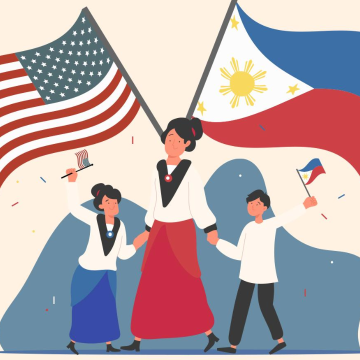 |
On July 4, 1946, following Japan’s defeat in World War ll, the United States granted
independence to the Philippines, a U.S. possession since 1898. Today, the 4th of July
is observed in the Philippines as Philippine-American Friendship Day, a day that pays
tribute to the long partnership between the two countries.
|
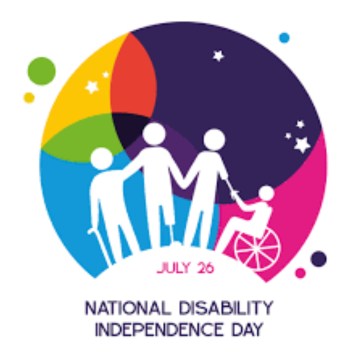 |
The Americans with Disabilities Act (ADA) was signed into law on July 26, 1990 by
President George H.W. Bush. Throughout the year and on the ADA Anniversary (July 26),
the ADA National Network recognizes this landmark event and the important work to
promote equal opportunity for people with disabilities.
|
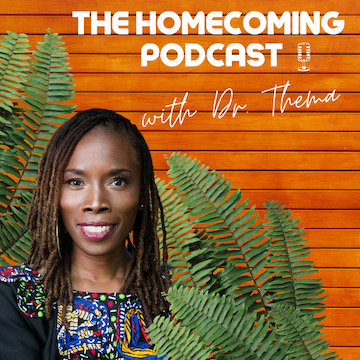 |
Dr. Thema Bryant is a licensed psychologist, ordained minister, and sacred artist.
Using artistic expression, spirituality, psychology and culture, Dr. Bryant-Davis
is an internationally recognized lecturer, performer, and minister.
The Homecoming Podcast with Dr. Thema is a podcast to facilitate your journey home
to yourself by providing weekly inspiration and health tips. Welcome home!
|
|
 |
From the evening of Tuesday, July 9, 2019 to the evening of Wednesday, July 10, 2019,
Baha’is around the world will observe the Martyrdom of the Báb. This holiday commemorates
the 1850 execution of the co-founder of the Baha’i faith, the Báb, in Persia. It is
one of nine holy days during which work and school is suspended.
|
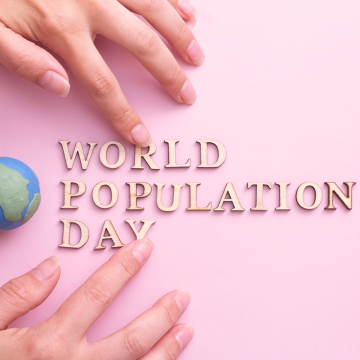 |
2023 Theme: Unleashing the power of gender equality. Uplifting the voices of women
and girls to unlock our world’s infinite possibilities. What women and girls want
matters. They make up 49.7% of the global population, yet women and girls are often
ignored in discussions on demographics, with their rights violated in population policies.
|
 |
The National African American Read-In (AARI) is a groundbreaking effort to encourage
communities to read together, centering African American books and authors.
It was established in 1990 by the Black Caucus of the National Council of Teachers
of English to make literacy a significant part of Black History Month. This initiative
has reached more than 6 million participants around the world.
|
|
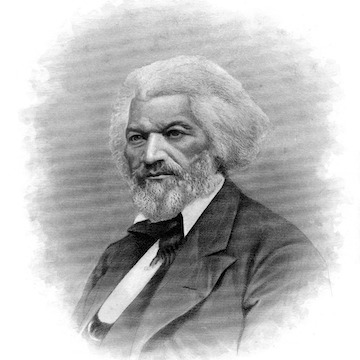 |
The Black Freedom Struggle is a website focused on Black Freedom, featuring select
primary source documents related to critical people and events in African American
history.
The intention is to support a wide range of students, as well as independent researchers
and anyone interested in learning more about the foundation of ongoing racial injustice
in the U.S. – and the fights against it.
|
|
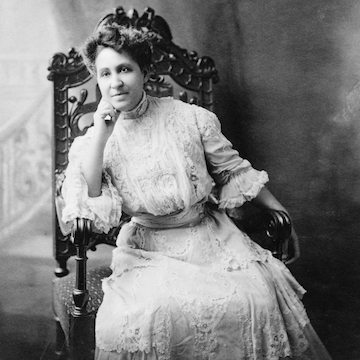 |
A collaborative project of the Library of Congress and the National Endowment for
the Humanities, National Gallery of Art, National Park Service, Smithsonian Institution,
United States Holocaust Memorial Museum, and U.S. National Archives and Records Administration
to pay tribute to the generations of African Americans who struggled with adversity
to achieve full citizenship in American society.
|
|
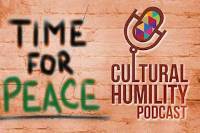 |
Join Dr. Miguel Gallardo, Director of the MA in Clinical Psychology MFT with Latinx
Communities program, for the Cultural Humility Podcast.
|
|
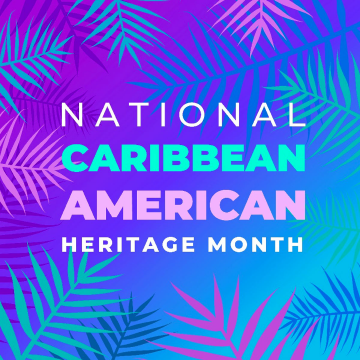 |
"Through the commemoration of this month, we hope to ensure that America is reminded
that its greatness lies in its diversity, with Caribbean immigrants from founding
father Alexander Hamilton, to journalist Malcolm Gladwell, who have shaped the American
dream."
|
|
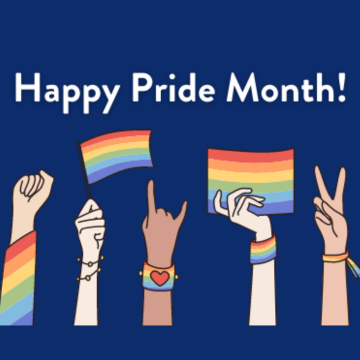 |
Lesbian, Gay, Bisexual, Transgender, and Queer Pride Month (LGBTQ+ Pride Month) is
celebrated annually in June to commemorate the 1969 Stonewall riots and works to achieve
equal justice and equal opportunity for the LGBTQ+ community.
|
|
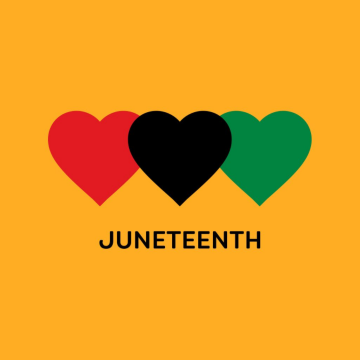 |
On June 19, 1865, two and a half years after the signing of the Emancipation Proclamation,
federal troops arrived in Galveston, Texas, to take control of the state and ensure
that all enslaved people were freed. Juneteenth honors the end to slavery in the United
States and is considered the longest-running African American holiday. Today, Juneteenth
commemorates African American freedom and emphasizes education and achievement. Partnering
with the Office of Community Belonging, Pepperdine has set up an in-person book display
in Payson Library along with a virtual bookshelf to celebrate the holiday. They have
also created a Juneteenth guide for further reading.
|
|
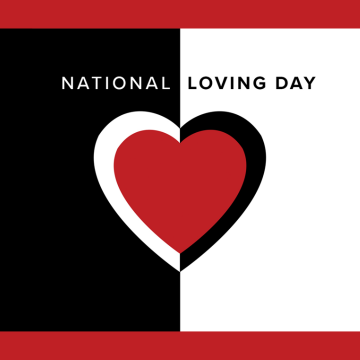 |
People around the world observe Loving Day every year on June 12th in meaningful and
personal ways. While all are welcome, it can be especially significant for interracial
couples, multiracial families, mixed race and transracially adopted people, and those
with similar lived experience.
|
|
 |
Hunger and malnutrition, limited access to education and other basic services, social
discrimination and exclusion, disabilities, restricted access to participation in
the democratic process.
|
|
 |
On a late summer day in 1963, Reverend Dr. Martin Luther King, Jr., stood on the National
Mall before hundreds of thousands of demonstrators who had gathered to march for freedom,
justice, and equality. On that day, Dr. King shared a dream that has continued to
inspire a Nation: To bring justice where there is injustice, freedom where there
is oppression, peace where there is violence, and opportunity where there is poverty.
|
|
 |
By making your resolutions realistic, there is a greater chance that you will keep
them throughout the year, incorporating healthy behavior into your everyday life.
|
|
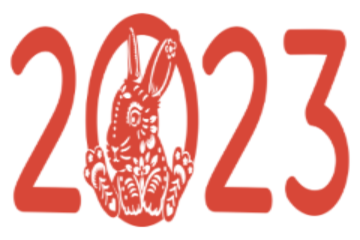 |
Lunar New Year is a celebration of the arrival of spring and the beginning of a new
year on the lunisolar calendar. It is the most important holiday in China, and it
is also widely celebrated in South Korea, Vietnam, and countries with a significant
overseas Chinese population. While the official dates encompassing the holiday vary
by culture, those celebrating consider it the time of the year to reunite with immediate
and extended family.
|
|
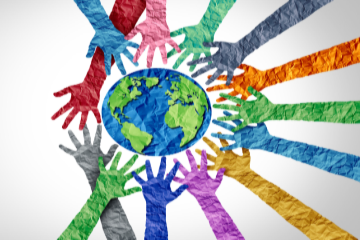 |
Celebrated every year on January 1, Global Family Day starts the new year with a positive
message of unity to the world. Yes, believe it or not, we are all one! Cultures and
religions across the world may be different but, the truth is, all of mankind is a
large family that can survive and succeed only if united. And yes, this is a goal
that can be achieved — all that is required is spreading the message of peace and
unity.
|
|
 |
International Customs Day is celebrated on January 26 every year and was initiated
by the World Customs Organization (W.C.O.) in 1983. This day celebrates all the customs
officials and agencies that toil day in and day out to ensure effective world trade
management. The officials also ensure the smooth functioning of trade operations across
international borders and put people at the very center of the transformation process.
|
|
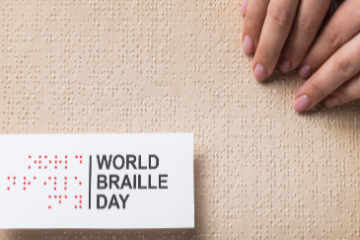 |
Braille is a tactile representation of alphabetic and numerical symbols using six
dots to represent each letter and number, and even musical, mathematical and scientific
symbols. Braille (named after its inventor in 19th century France, Louis Braille)
is used by blind and partially sighted people to read the same books and periodicals
as those printed in a visual font. Braille is essential in the context of education,
freedom of expression and opinion, as well as social inclusion.
|
|
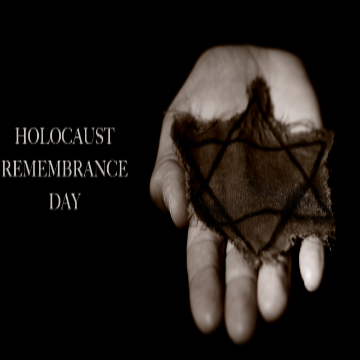 |
The United Nations General Assembly designated January 27—the anniversary of the liberation
of Auschwitz-Birkenau—as International Holocaust Remembrance Day. On this annual day
of commemoration, the UN urges every member state to honor the six million Jewish
victims of the Holocaust and millions of other victims of Nazism and to develop educational
programs to help prevent future genocides.
|
|
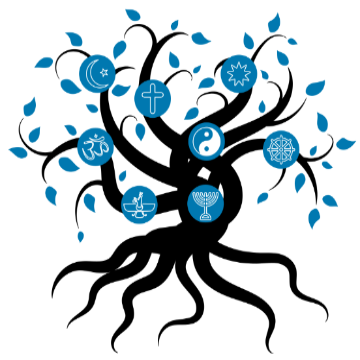 |
World Religion Day takes place each January, aiming to promote understanding and peace
between all religions as well as mutual understanding and tolerance between peoples
from different backgrounds.
|
|
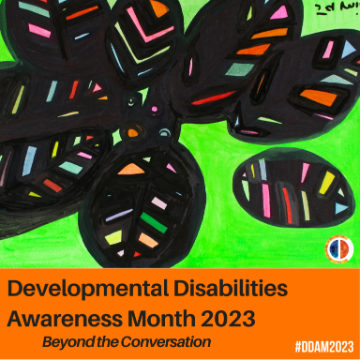 |
Each March, the National Association of Councils on Developmental Disabilities (NACDD),
and our partners work together to create a social media campaign that highlights the
many ways in which people with and without disabilities come together to form strong,
diverse communities. The campaign seeks to raise awareness about the inclusion of
people with developmental disabilities in all facets of community life, as well as
awareness of the barriers that people with disabilities still sometimes face in connecting
to the communities in which they live.
|
|
 |
The United Nations Observance of IWD, under the theme “DigitALL: Innovation and technology
for gender equality”, recognizes and celebrates the women and girls who are championing
the advancement of transformative technology and digital education. The observance
will explore the impact of the digital gender gap on widening economic and social
inequalities, and it will also spotlight the importance of protecting the rights of
women and girls in digital spaces and addressing online and ICT-facilitated gender-based
violence.
|
|
 |
Is an annual observance held on March 11 all over the world, which has taken place
for the past 13 years. This day was created in 2010 by Javed Mohammed, a writer and
producer from California. The main aim of the celebration is to share and discuss
Muslim culture to create a link and understanding across faiths and to promote a better
knowledge of Muslim culture.
|
|
 |
NJSACC celebrates the culture, accomplishments and experiences of Greek people during
Greek-American Heritage Month in March.
|
|
 |
Pi Day is celebrated on March 14th (3/14) around the world. Pi (Greek letter “π”)
is the symbol used in mathematics to represent a constant — the ratio of the circumference
of a circle to its diameter — which is approximately 3.14159. Pi Day is an annual
opportunity for math enthusiasts to recite the infinite digits of Pi, talk to their
friends about math, and eat pie.
|
|
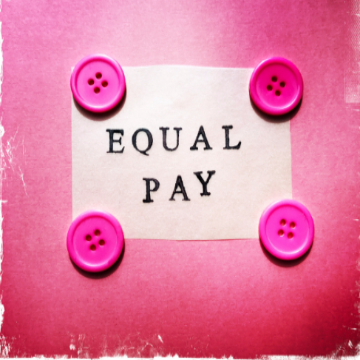 |
According to the National Committee on Pay Equity, “This date symbolizes how far into
the year women must work to earn what men earned in the previous year." Equal Pay
Day was originated by the National Committee on Pay Equity (NCPE) in 1996 as a public
awareness event to illustrate the gap between men's and women's wages. (It was originally
called ‘National Pay Inequity Awareness Day’ and changed to Equal Pay Day in 1998.)
|
|
 |
March is an important month for celebrating sexual and gender diversity. Many of us
are already aware of Women’s History Month. March is also regarded as Gender Equality
Month, which serves as a call to celebrate the history, contributions, and wellness
of community members who are impacted by gender-based bias and oppression. We honor
and uplift the livelihoods of all femmes, transgender and non-binary people, and women
and girls this month and year-round.
|
|
 |
It's not just the Irish who throw a party this time of year. Across the US, small
groups of Finnish Americans are celebrating St Urho's Day, which falls on 16 March.
|
|
 |
St. Patrick’s Day is celebrated annually on March 17, the anniversary of his death
in the fifth century. St. Patrick’s Day 2023 will take place on Friday, March 17.
The Irish have observed this day as a religious holiday for over 1,000 years. On St.
Patrick’s Day, which falls during the Christian season of Lent, Irish families would
traditionally attend church in the morning and celebrate in the afternoon.
|
|
 |
In March, the National Archives celebrates the contributions of Irish Americans in
our nation’s history during Irish American Heritage Month.
|
|
 |
You would think that the world’s people would celebrate this day—and it turns out
they do. Called Naw-Ruz, Nowruz or New Year’s by Zoroastrians, Alewites, Sufis, some
Muslims, and Baha’is, this secular holiday has been observed around the world for
more than three thousand years. (In Farsi, the Persian language, Naw-Ruz means “new
year” or “new day.”) Naw-Ruz probably originated with Zoroaster (also known as Zarathustra),
the monotheistic messenger who founded Zoroastrianism ten centuries before Christ.
|
|
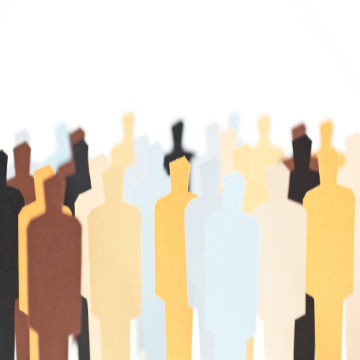 |
Ethnic Equality Month is celebrated in February every year. It is a period to recognize
the similarities all people have, yet acknowledge, appreciate and respect the differences
in all of us. So no matter what race you are, or what ethnicity you belong to, everyone
is equal and deserves equal rights and equal opportunities. Ethnic Equality Month
is a good time to reflect and challenge ourselves, as a group and individually. It
brings to light the unfortunate biases that still exist in our society, how far we’ve
come in achieving equality, and what each one of us can do to contribute to something
the world should be striving to achieve; social equality and justice.
|
|
 |
The Islamic calendar follows the phases of the moon, commonly known as the lunar cycle.
As a result, the Holy month of Ramadan falls approximately 10 days earlier each year
in the Gregorian calendar. The Ramadan start date for 2023 is expected to begin on
Wednesday 22 March, following the sighting of the moon over Mecca. Lasting for 30
days, Ramadan will end on Friday 21 April, with the celebratory days of Eid al-Fitr
starting on Saturday 22 April or Sunday 23 April.
|
|
 |
Purim (Heb. פּוּרִים) is one of the most joyous and fun holidays on the Jewish calendar.
It commemorates a time when the Jewish people living in Persia were saved from extermination.
|
|
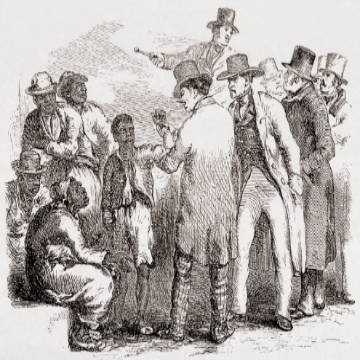 |
The Outreach Programme on the Transatlantic Slave Trade and Slavery was established
in 2007 with the adoption of General Assembly resolution 62/122. The Programme raises
awareness of the history of the transatlantic slave trade, its impact on the modern
world, and its legacies, including racism and prejudice. Over the years, the Programme
has established a global network of partners, including from educational institutions
and civil society, and developed resources and initiatives to educate the public about
this dark chapter of history and promote action against racism.
|
|
 |
Collective action and shared ownership for driving gender parity is what makes International
Women's Day impactful. Gloria Steinem, world-renowned feminist, journalist and activist
once explained "The story of women's struggle for equality belongs to no single feminist
nor to any one organization but to the collective efforts of all who care about human
rights." So make International Women's Day your day and do what you can to truly make
a positive difference for women.
|
|
 |
Despite significant progress, structural inequality based on gender, race, class,
disability, and ethnicity persists around the world and is compounded and complicated
by today’s challenges. Gender-based violence—rooted in patriarchy and laws, policies,
and cultural norms aimed at curtailing rights—inflicts deep, lasting physical, psychological,
and economic damage. People of color are disproportionately policed and incarcerated.
Immigrants and LGBTQ+ people are targeted simply because of who they are.
|
|
 |
April recognizes all those who give their time and energy during National Volunteer
Month. In fact, the Foster Grandparent Program (FGP) offers a multigenerational approach
to community volunteerism by giving older adults the opportunity to volunteer with
youth ranging from infancy to 21 years of age.
|
|
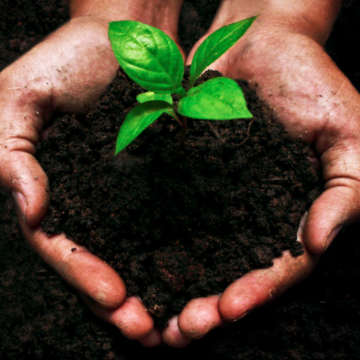 |
Climate Calling is a conference dedicated to exploring climate change, its consequences,
and our moral calling to respond to growing concerns about the future of our planet.
The conference is led by a group of Pepperdine faculty members from diverse disciplines.
Attendees learn about topics such as species extinction, drought, flooding, marine
impacts, sustainable food practices, and environmental justice and activism through
a keynote lecture, student presentations, and on-campus activities.
|
|
 |
April 22 is Earth Day, a worldwide holiday where people ban to together to support
environmental protection and pledge to better co-exist with nature. It is time to
show our gratitude towards Mother Earth.
|
|
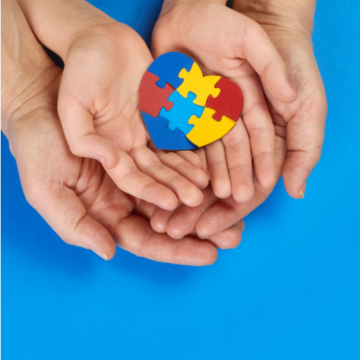 |
April is Autism Acceptance Month. The recognition raises awareness about autism acceptance
and promotes inclusion and connectedness for people with autism. Social and community
support can help people with autism achieve optimal health and reach their full potential.
CDC promotes early identification and provides essential data on autism to inform
programs and policies that support children with autism and their families.
|
|
 |
During April, we uplift Arab American Heritage Month. These resources will help educators
celebrate Arab identity, counter negative stereotypes, teach about Arab history and
cultures, and ensure an inclusive environment that supports Arab American students
this month and throughout the year.
|
|
 |
It’s time to celebrate Scottish American Heritage Month with events, educational resources,
exciting cultural celebrations, and more. Each year, we take the time to honor the
contributions of Scottish Americans throughout history, as well as the culture and
peoples of Scotland. It’s an important time for Scottish and Scottish-American individuals
and others to learn about Scottish-American culture and experiences.
|
|
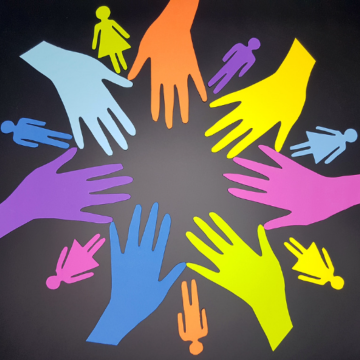 |
Celebrate Diversity Month
The Diversity Council provides a forum for the GSEP community to engage in events,
professional development and, meaningful discussions related to multicultural issues
impacting the community and the world. These experiences are meant to provide a means
for faculty, staff, and students to cultivate their multicultural knowledge, embrace
differences, and build community. All students, alumni, faculty, staff, and guests
are welcome to attend.
|
|
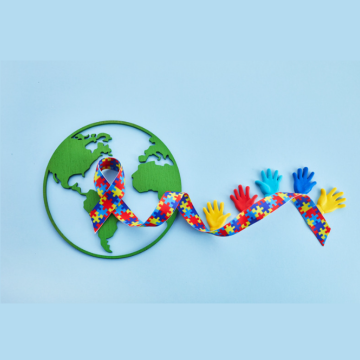 |
In recent years, major progress has been made in increasing awareness and acceptance
of autism, not least thanks to the many amazing autistic advocates who have worked
tirelessly to bring the lived experience of autistic people to the wider world. Additionally,
medical professionals, researchers and academics in many countries are now incorporating
the neurodiversity paradigm, coined by sociologist Judy Singer in the late 1990s,
in their work.
|
|
 |
Passover is celebrated by Jews every year, commemorating the anniversary of our miraculous
Exodus from Egyptian slavery, as told in the Bible. On the first two nights of Passover
(just the first night in Israel), we hold a Seder. After candles have been lit, we
enjoy a ritual-rich 15-step feast, which centers around telling the story of the Exodus.
|
|
 |
Debate as tool for Peace building. We aim at improving the critical thinking and communication
skills of secondary students so that they become engaged and active citizens in their
communities. We envision a society where differences are embraced and conflict is
resolved without resorting to violence, through teaching the youth how to disagree
on public policy issues without treating your opponent as an enemy
|
|
 |
Christians around the globe prepare to commemorate the death and resurrection of Jesus
Christ. In celebration, we’ve compiled a list of five movies sure to get you in the
Easter spirit that you can check out right now from Pepperdine Libraries. Our resources
are always available to Pepperdine students, faculty, and staff. And as a reminder,
members of the public interested in borrowing physical materials, including DVDs,
are welcome to join the Friends of the Library or become a Waves Associate.
|
|
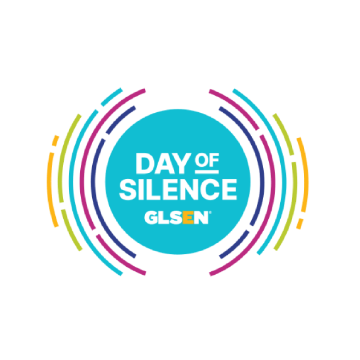 |
The GLSEN Day of Silence is a national student-led demonstration where LGBTQ+ students
and allies all around the country—and the world—take a vow of silence to protest
the harmful effects of harassment and discrimination of LGBTQ+ people in schools.
Started in the mid 90’s by two college students, the Day of Silence has expanded to
reach hundreds of thousands of students each year. Every April, students go through
the school day without speaking, ending the day with Breaking the Silence rallies
and events to share their experiences during the protest and bring attention to ways
their schools and communities can become more inclusive.
|
|
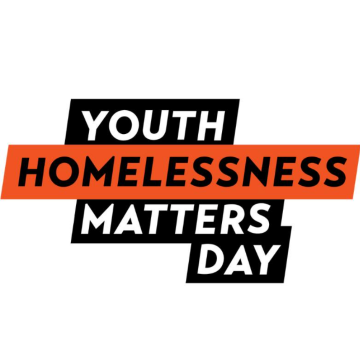 |
Youth Homelessness Matters Day
Youth Homelessness Matters Day (YHMD) is a national day that was conceived in 1990
to raise awareness and public discussion about child and youth homelessness. Over
the years, it has grown into a national celebration of young people’s resilience and
an important day of advocacy for sustainable and innovative solutions to support the
needs of children and young people at risk of or experiencing homelessness.
|
|
 |
Ridvan (say "rez-VONN") is one of the holiest holidays for the members of the Bahá'í
(say "BA-hi") faith. It lasts 12 days and is also known as the "Most Great Festival"
or the "King of Festivals." This year, Ridvan begins at sunset on April 20th and lasts
until sunset on May 2nd. Out of the 12 days of Ridvan, there are three holy days in
which people do not go to work or school. Instead, they gather with the Bahá'í community
for prayers and religious meetings. Musical and artistic performances are also included
in the festivities
|
|
 |
Advisor Appreciation Day, on April 21, is an annual observance to celebrate the role
of advisors in the education sector. The education system of the U.S. has been in
use since the 1700s. It aims to appreciate the work of education advisors. Education
advisors are academic counselors or consultants for students going to or in college.
They help students choose majors, apply for scholarships, and with their choice of
subjects and career decisions. People celebrate this day by thanking advisors for
their contribution to guiding young lives. They spend a lot of time and energy and
are not always compensated well.
|
|
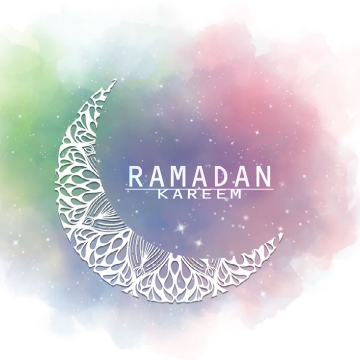 |
Ramadan 2023 begins at sunset on Wednesday, March 22 and ends on Saturday, April 20.
Ramadan is the ninth month of the 12-month Islamic calendar, a lunar calendar that’s
based on the phases of the moon. The lunar calendar falls short of the solar calendar
by 11 days. As a result, Ramadan doesn’t start on the same date each year and instead,
over time, passes through all the seasons.
|
|
 |
For Baha’is the twelve-day period between April 20th and May 1st marks the holiest
and happiest festival of the year, called Ridvan (pronounced Rez-wan). These Baha’i
Holy Days, which celebrate the beginning of the Baha’i Faith in 1863 as its Founder
Baha’u’llah prepared for exile, also recognize a period of great turmoil in Baha’i
history and signify the transformation of suffering and oppression into joy.
|
|
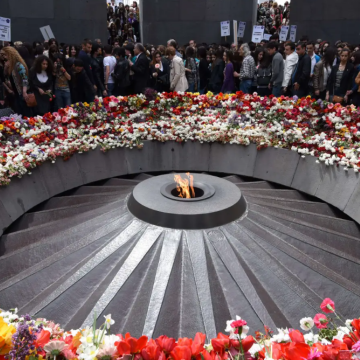 |
Armenian Genocide Remembrance Day is observed on April 24. On April 24, 1915, Ottoman
authorities arrested Armenian intellectuals and community leaders in Constantinople—the
start of a systematic campaign of violence against the Armenian community. In the
years that followed, one and a half million Armenians were deported, massacred, or
marched to their deaths—a tragedy that forever affected generations of Armenian families.
|
|
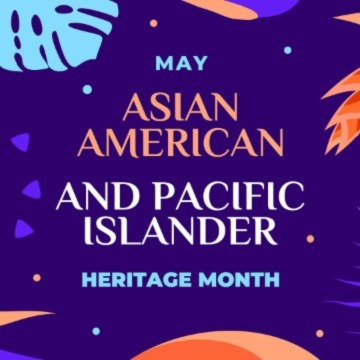 |
May is Asian/Pacific American Heritage Month The Library of Congress, National Archives
and Records Administration, National Endowment for the Humanities, National Gallery
of Art, National Park Service, Smithsonian Institution and United States Holocaust
Memorial Museum join in paying tribute to the generations of Asian and Pacific Islanders
who have enriched America's history and are instrumental in its future success.
|
|
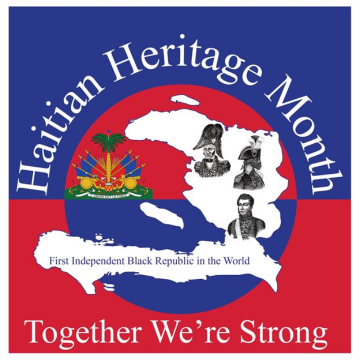 |
The month of May is Haitian Heritage Month and to celebrate the Haitian Heritage
Museum will take part in a series of events and programming. First, the Haitian Heritage
Museum will celebrate by having a cadre of events throughout the community where Haitians
and non-Haitians alike can come get a taste of Haitian culture without leaving or
needing a passport.
|
|
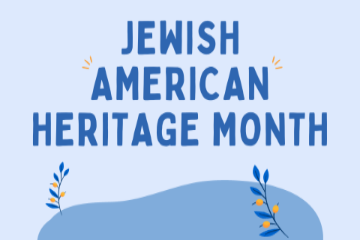 |
Jewish American Heritage Month (JAHM) each May is a celebration of the contributions
and experiences of Jewish Americans and highlights how America’s Jewish communities
have shaped and been shaped by the cultural, social, and economic fabric of the United
States.
|
|
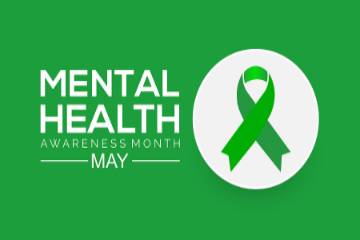 |
Mental Health Awareness Month has been observed in the U.S. since 1949. Every year
during the month of May, NAMI joins the national movement to raise awareness about
mental health. Together, we fight stigma, provide support, educate the public and
advocate for policies that support the millions of people in the U.S. affected by
mental illness. Read below to learn more about how you can get involved.
|
|
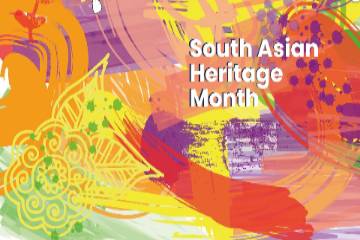 |
South Asian Heritage Month was officially named in 2020 to celebrate the culture and
contributions of South Asian countries and their peoples. During this month, many
honor the people and countries of Bangladesh, Bhutan, India, Pakistan, Nepal, Sri
Lanka, Afghanistan, and the Maldives. This month can play an important role in the
validation and experience of many and preserves the rich history and voices of millions
of people around the world.
|
|
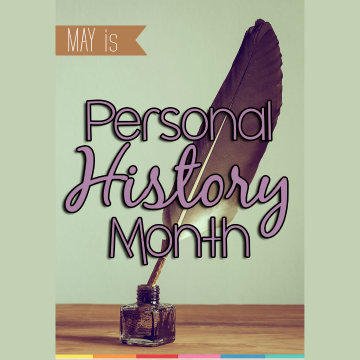 |
Personal History Awareness Month has been internationally observed every May since
personal historians designated it as a time to encourage more people to discover their
family histories. This is important because our families have lived through significant
historical moments and responded to them in their own ways, demonstrating how historical
moments affect people’s everyday lives.
|
|
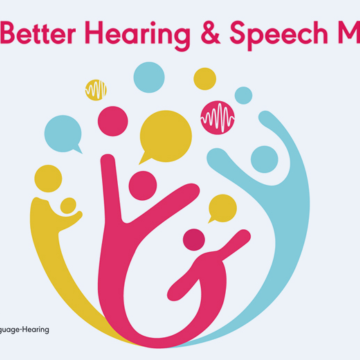 |
Each May, Better Hearing & Speech Month (BHSM) provides an opportunity to raise awareness
about communication disorders and the role of ASHA members in providing life-altering
treatment. For 2023, our theme is “Building a Strong Foundation”
|
|
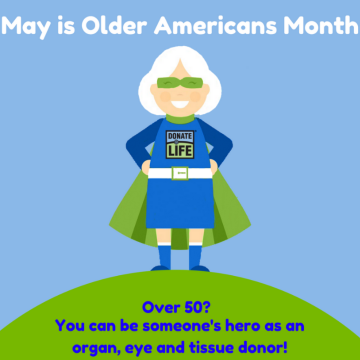 |
Every May, the Administration for Community Living leads the nation’s observance of
Older Americans Month (OAM). The 2023 theme is Aging Unbound, which offers an opportunity
to explore diverse aging experiences and discuss how communities can combat stereotypes.
Join us in promoting flexible thinking about aging – and how we all benefit when older
adults remain engaged, independent, and included.
|
|
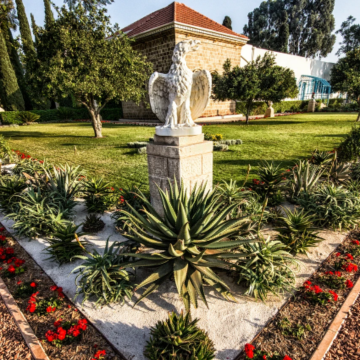 |
The twelve days of Ridván are the most holy festival in the Bahá’í calendar. It celebrates
the very beginning of the Bahá’í Faith, when its Prophet Founder, Bahá’u’lláh, announced
to some of His followers that He was the Messenger of God for this Day, anticipated
by all the world’s major religions.
|
|
 |
While Star Wars fans are united in their love for the galaxy far, far away, a hallmark
of Star Wars fandom is that no fan is the same as the next. Your first introduction
to Star Wars, your favorite film or character, or how old you were when you fell in
love with Star Wars makes your story different and unique. To celebrate May the 4th,
StarWars.com spoke to several Star Wars Celebration Europe to answer just one question:
“What does Star Wars mean to you?” Here are their responses in their own words.
|
|
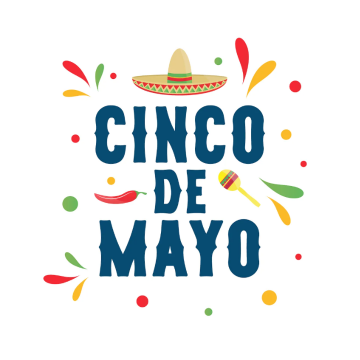 |
You might hear about Cinco de Mayo parties. But even though celebrations of Cinco
de Mayo (which translates to the Fifth of May) originated in Mexico, the day is more
popular in the United States! So what does Cinco de Mayo celebrate? On the morning
of May 5, 1862, 6,000 French troops stormed the Mexican city of Heróica Puebla de
Zaragoza to bring it under French rule. The Mexican soldiers were outnumbered, but
they fiercely fought back. By early evening, the French had retreated.
|
|
 |
By resolution 59/26 of 22 November 2004, the UN General Assembly declared 8–9 May
as a time of remembrance and reconciliation and, while recognizing that Member States
may have individual days of victory, liberation and commemoration, invited all Member
States, organizations of the United Nations System, non-governmental organizations
and individuals to observe annually either one or both of these days in an appropriate
manner to pay tribute to all victims of the Second World War.
|
|
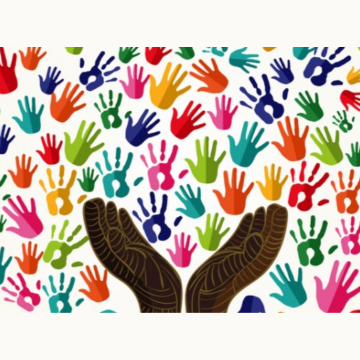 |
From race and socioeconomic status to gender and sexual orientation, diversity comes
in many different shapes and sizes. For many young adults, college is the first opportunity
to encounter diversity. Although it can render human interaction more challenging,
two experts and six students agreed that diversity is a necessary and invaluable aspect
of the human experience, especially the college experience.
|
|
 |
On May 23, Baha’i's around the world will celebrate the holiday known as the Declaration
of the Báb. It commemorates when the Báb announced in 1844 that he was the new messenger
of God. The holiday begins two hours and eleven minutes after sunset on May 22, which
is the exact time the Báb made his declaration.
|
|
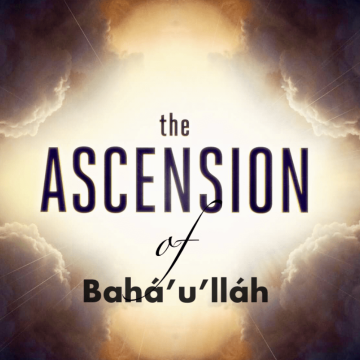 |
Baha’u’llah, the founder of the Baha’i Faith, left this physical world on May 29th,
1892. In every religion, the death of its founder marks a momentous event – so how
do Baha’is observe Baha’u’llah’s ascension? Essentially, Baha’is remember this mournful
day each year by focusing on Baha’u’llah’s life and teachings, and by bearing witness
to the belief that Baha’u’llah’s spirit did not die, but has been released from earthly
limitations by ascending to a higher realm.
|
|
 |
Memorial Day, which is observed on the last Monday of May, commemorates the men and
women who died while in the military service. In observance of the holiday, many
people visit cemeteries and memorials, and volunteers often place American flags on
each grave site at national cemeteries. A national moment of remembrance takes place
at 3:00 p.m. local time.
|
|
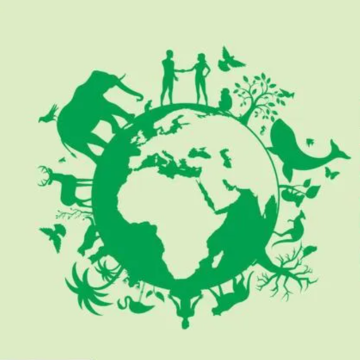 |
Biodiversity remains the answer to several sustainable development challenges. From
nature-based solutions to climate, health issues, food and water security, and sustainable
livelihoods, biodiversity is the foundation upon which we can build back better.
|
|
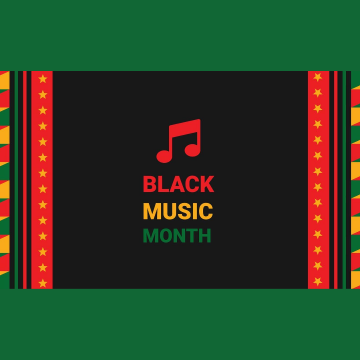 |
June is African American Music Appreciation Month! Created by President Jimmy Carter
in 1979, this month celebrates the African American musical influences that comprise
an essential part of our nation’s treasured cultural heritage. Formerly called National
Black Music Month, this celebration of African American musical contributions is re-established
annually by presidential proclamation.
|
|
 |
This year we celebrate the bicentennial of the French Revolution by examining contemporary
folk traditions of France and of French-speaking peoples of North America. The people
of Britanny, Normandy, Poitou, Quebec, and the French-speaking communities of New
England and Louisiana, North Dakota and Missouri share a common origin and linguistic
affinity.
|
|
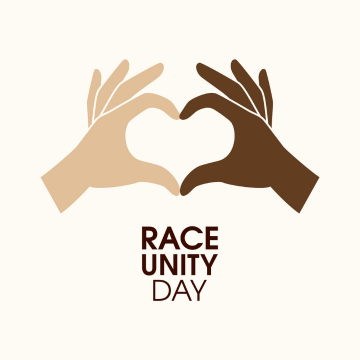 |
Although the Bahá’í National Spiritual Assembly created the holiday, it’s not a religious
event or a Bahá’í holy day. The purpose of the holiday is to recognize and appreciate
each other’s diversity and come together to make the world a better place. Outside
of Race Unity Day, local Bahá’í communities host workshops, events, and classes throughout
the year to further educate people and combat racism.
|
|
 |
On July 4, 1946, following Japan’s defeat in World War ll, the United States granted
independence to the Philippines, a U.S. possession since 1898. Today, the 4th of July
is observed in the Philippines as Philippine-American Friendship Day, a day that pays
tribute to the long partnership between the two countries.
|
|
 |
From the evening of Tuesday, July 9, 2019 to the evening of Wednesday, July 10, 2019,
Baha’is around the world will observe the Martyrdom of the Báb. This holiday commemorates
the 1850 execution of the co-founder of the Baha’i faith, the Báb, in Persia. It is
one of nine holy days during which work and school is suspended.
|
|
 |
2023 Theme: Unleashing the power of gender equality. Uplifting the voices of women
and girls to unlock our world’s infinite possibilities. What women and girls want
matters. They make up 49.7% of the global population, yet women and girls are often
ignored in discussions on demographics, with their rights violated in population policies.
|
|
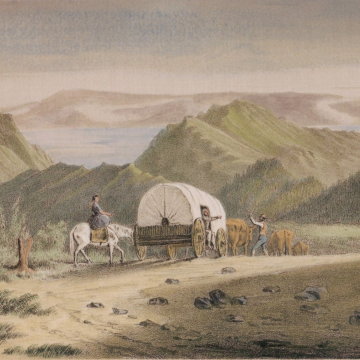 |
Completing a treacherous thousand-mile exodus, an ill and exhausted Brigham Young
and fellow members of the Church of Jesus Christ of Latter-Day Saints arrived in Utah’s
Great Salt Lake Valley on July 24, 1847. The Mormon pioneers viewed their arrival
as the founding of a Mormon homeland, hence Pioneer Day. The Mormons, as they were
commonly known, left their settlement in Nauvoo, Illinois, and journeyed West seeking
refuge from religious persecution.
|
|
 |
The Americans with Disabilities Act (ADA) was signed into law on July 26, 1990 by
President George H.W. Bush. Throughout the year and on the ADA Anniversary (July 26),
the ADA National Network recognizes this landmark event and the important work to
promote equal opportunity for people with disabilities.
|
|
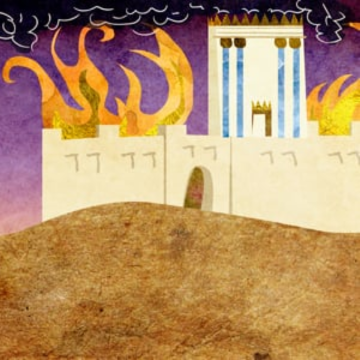 |
Tisha B’Av, the Fast of the Ninth of Av, is a day of mourning to commemorate the many
tragedies that have befallen the Jewish people, many of which coincidentally occurred
on the ninth of Av. Tisha B’Av literally means “the ninth (day) of Av” in Hebrew. Although
this holiday is primarily meant to commemorate the destruction of the Temple, it is
appropriate to consider the many other tragedies of the Jewish people that also occurred
on this day.
|
|
|